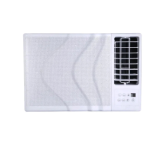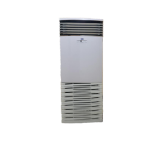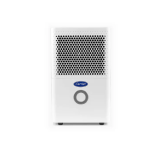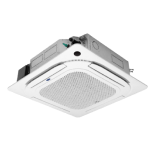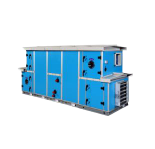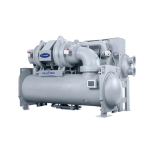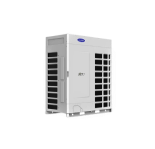The Ultimate Guide to AC Buying
According to recent studies, the demand for air conditioning devices in the Philippines clocked in at approximately 870,000 units in 2022, indicating a steady rise since 2019. This increasing demand highlights the important role air conditioners play in residential and commercial structures. These devices can turn any room into a comfortable environment and help maintain consistent indoor air quality.
Given the benefits of having an air conditioner, it’s important to consider a variety of factors in choosing the right AC for your space. This AC buyer’s guide aims to help consumers looking for their next air conditioner by providing essential information about aircon types, electric consumption, and maintenance requirements.
Must-know Information For Purchasing an Air Conditioner
Though advanced technology has led to the development of different types of air-conditioning units, it has also made the buying process more complicated than ever. This is why consumers must do their research before committing to an air conditioner and having it installed.
It’s not enough to research the latest air conditioner features or learn about aircon technology. One must also consider the size and features of the room where the air conditioner is to be used, heat sources in the said area, and the frequency of use.
Below is an overview of the most important factors to consider in buying an air conditioner.
Room Size and Usage
It’s crucial to know the exact dimensions of the room where the air conditioner is to be installed. The size of the room determines the cooling capacity or horsepower (HP) you should look for in an AC unit. As a rule of thumb, larger rooms need higher-HP air conditioners for sufficient cooling.
Ceiling height and doorway size are other important room features to note, as these properties will affect the cooling power the room needs. For instance, you’ll need a high-HP air conditioner for rooms with open doorways. The same is true for rooms that aren’t properly insulated since these tend to hold more heat.
Aside from room size and structure, consider how the room is generally used. If the room is usually occupied by more than two people, you may need to get a higher-HP air conditioner than you would for the room’s size.
Area’s Exposure to Heat
Another important factor to consider is how much heat the space is exposed to. Consider how much sunlight enters the room through the windows, as this significantly increases temperature. To remove this heat and bring the indoor temperature down, a higher cooling capacity is needed. Conversely, you can consider lower-HP air conditioners if you’re planning to install the unit in a heavily shaded room.
Appliances such as refrigerators, rice cookers, and stoves and fixtures such as light bulbs likewise produce a lot of heat. These also affect how hard an air conditioner has to work to cool down a room. As such, it would be wise to consider more powerful AC units for kitchens and rooms featuring plenty of heat sources.
Special Air Conditioning Features
As you research aircon models and specifications, you’ll likely discover that air conditioners these days offer plenty of special features that provide ease of use.
Timers, remote controls, noise levels - all these are special features that make aircon use easier and more enjoyable. When considering these features, it helps to consider where the air conditioner is going to be installed. For instance, for an air conditioner for the bedroom, you may want to look for units that come with remote controls and are designed for quiet operations.
You may also be able to find air conditioners that can be controlled via mobile phones. These units are a great choice if you want easier control over a room’s cooling.
What’s the right AC for me?
Now that you know all about aircon considerations to keep in mind before shopping, you can explore the different types of AC units on the market today. Is a split-type or window-type AC better for your needs?
Below, we list down the most common types of air conditioners and highlight their most important features, pros, and cons. Hopefully, this information can help you choose the right AC for your needs.
Window-type Air Conditioners
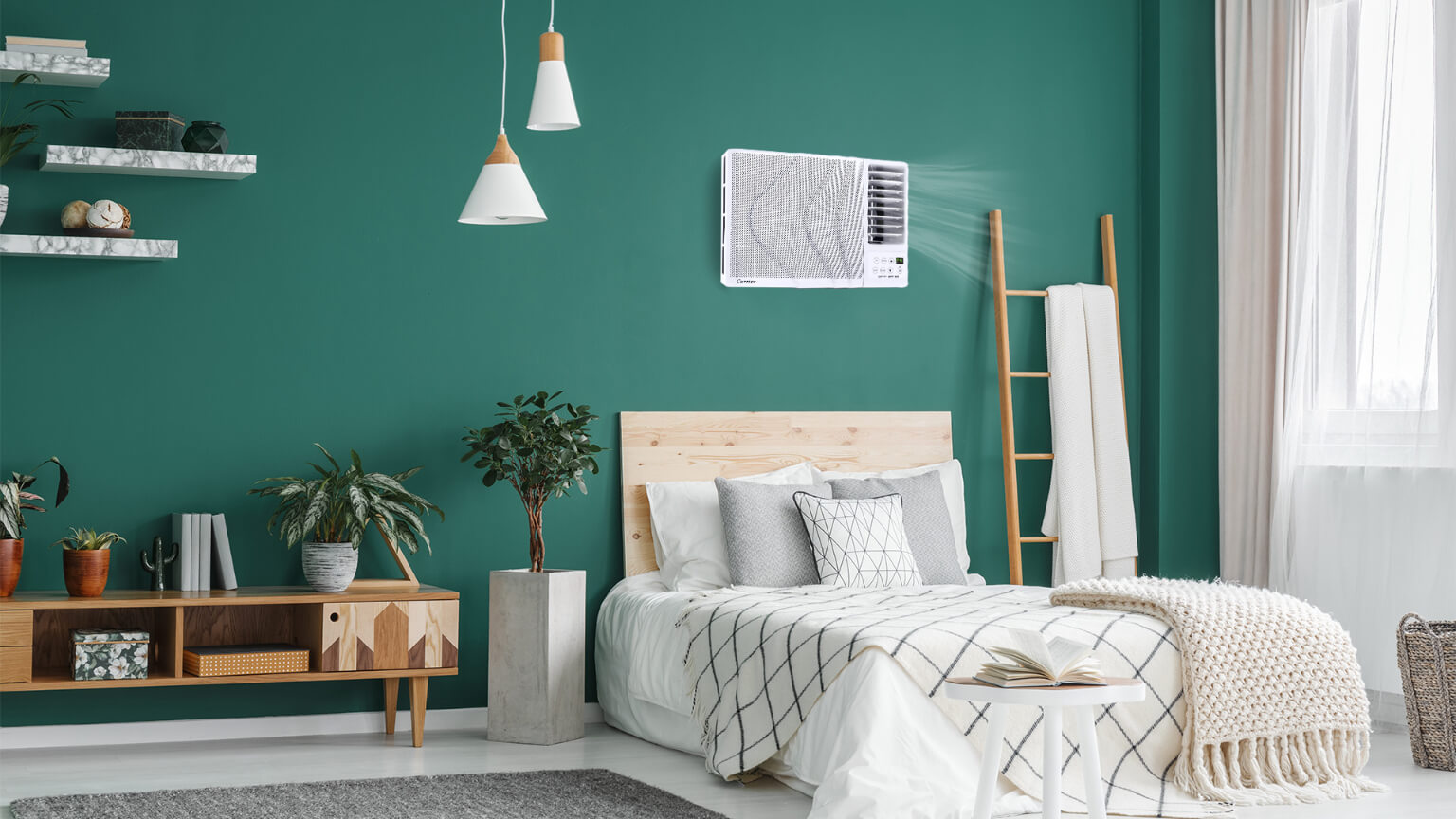
Window-type air conditioners are a popular choice for many types of buildings, including homes and offices. So named because it’s designed to fit into window openings, a window-type AC is designed as a single unit with buttons or knobs on its front panel. These units come in various sizes and cooling capacities, but they work most effectively when cooling down a single, enclosed room.
One of the main advantages of window-type air conditioners is that they don’t take up too much floor space and tend to be easy to install and maintain. Many of these air conditioners are also inexpensive, making them more accessible. However, these units often need to be placed near a power source and they may not be compatible with all window shapes and sizes.
Split-type Air Conditioners
The most obvious difference between a window-type and a split-type AC is the design. While window-type ACs are bulky or boxy, a split-type air-conditioner has sleek, unobtrusive features.
The differences don’t end there. Split-type ACs are commonly designed with a compressor and a condenser connected through a series of tubes. These units also have larger, longer vents that can emit a higher amount of cool air, which makes them a great choice for bigger rooms. As such, these units are usually installed high up on walls to maximize their cooling capabilities.
Many split-type air conditioners also feature more advanced, energy-saving technology, which can contribute to long-term savings. However, there are some downsides to expect with these units. They need to be installed and maintained by professionals to reduce safety risks. This is particularly true for these air conditioners’ condensers, which may need servicing at least twice a year.
Floor-mounted Air Conditioners
Another popular type of air conditioner is the floor-mounted AC. Like wall-mounted air conditioners, these are connected to a unit outdoors and are known for their powerful cooling capacities. Most of these air conditioners also have adjustable vents so users can easily direct airflow where they want.
These air conditioners are a good choice for rooms where the walls aren’t strong enough or don’t have enough space for installing an AC unit. You can also choose a floor-mounted AC if your ceilings are too low for a split-type AC.
Though these air conditioners are more versatile when it comes to installation, they also have some drawbacks. For instance, airflow from these units may be blocked by ground-level obstacles like furniture and appliances.
Portable Air Conditioners
Similar to window-type and floor-mounted air conditioners, portable air conditioners have all their components contained in a single unit. These units usually come with window vents or exhaust funnels for discharging heat through a window or a similar wall opening.
Like floor-mounted air conditioners, portable ACs aren’t placed on walls and can typically be used as free-standing units. A unique advantage of portable air conditioners is that they can be moved from one room to another as needed. However, to work properly, these air conditioners must be placed near a window and a power source.
Given the many types and designs of air conditioners available today, you’re sure to find a unit that matches your needs.
Which is better: Inverter vs. Non-inverter AC?
Knowing the difference between inverter and non-inverter AC units is also crucial in learning all about aircon units available to you today. Fortunately, the difference between these two AC technologies is fairly straightforward.
Inverter Air Conditioners
In an inverter air conditioner, the compressor keeps the AC motor running as long as the AC is switched on, adjusting its speed to maintain your desired temperature. This means the compressor can use anywhere between 0% to 100% energy to keep the room’s temperature consistent.
This variable-speed operation leads to a number of benefits. First, inverter air conditioners tend to be more energy-efficient. Since the motor slows down once the desired temperature is reached, you can keep the AC on for longer without consuming too much energy. This makes inverter air conditioners a good investment for offices and other areas that need cooling for longer periods.
Lastly, inverter AC units work more quietly, making them ideal for bedrooms and other quiet environments.
That said, all these benefits come at a pretty steep price. Inverter air conditioners tend to cost more than their non-inverter counterparts. Aside from the high price tag, inverter AC units are also more expensive to maintain and repair and require professional technicians for servicing.
Non-inverter Air Conditioners
Meanwhile, in a non-inverter air conditioner, the compressor is designed to work at fixed motor speeds and can only be turned on and off. The compressor switches off once the room reaches the temperature you want and switches on again when the temperature changes. This start-stop or on-off cycle leads to larger fluctuations in temperature, which results in higher energy consumption.
The biggest advantage a non-inverter AC has over an inverter AC is its price. Non-inverter AC units are usually more affordable and accessible, which makes them a great choice for consumers with a limited budget. That said, you must also expect these units to be noisier since they regularly switch on and off.
Considering all these details, the best choice between an inverter and a non-inverter AC largely depends on your budget and unique preferences.
How to Know the Right HP and Electric Consumption For You
After cooling capacity, the next most important factor most consumers want to know about an air conditioner is its energy consumption. In a country like the Philippines where the weather is hot for most of the year, air conditioners rank among the appliances that consume the most electricity.
Air conditioner energy consumption, and the associated costs, largely depend on the unit’s size, the number of hours it’s operated daily, and the electricity rate (in kilowatt-hours or kWh) indicated in your electric bill.
For instance, a 1-HP non-inverter aircon used 4 hours daily can cost approximately PhP 1,003 per month. In comparison, a 1-HP air conditioner with inverter technology used for the same amount of time may add only PhP 652 to your monthly electric bill.
All About Aircon Energy Efficiency Ratings
Another important factor to consider when choosing an air conditioner for your space is the aircon’s Energy Efficiency Rating (EER). Since they’re more energy-efficient, AC units with a higher EER will cost less to use. Air conditioners with an EER of 10.8 and above are generally considered energy-efficient.
That said, it’s important to note that EERs typically vary depending on the type of air conditioner and have an impact on the air conditioner’s initial costs. This means air conditioners with higher EER ratings tend to be more expensive. However, these units’ energy efficiency may end up saving you money in the long run.
The Benefits of Aircon Cleaning
An air conditioner can make any space more comfortable and enjoyable. You can make sure it stays that way by getting your air conditioner cleaned and maintained regularly. A dirty air conditioner not only consumes more power but also compromises the quality of indoor air.
Below are some important benefits of AC cleaning done by professional technicians:
- It lowers energy consumption.
Dirt and debris accumulate in air conditioning units over time, which can compromise the airflow. This means the AC has to work harder at cooling the room down, resulting in increased energy consumption. When the air filter and the AC unit’s components are regularly kept clean, the unit works at peak efficiency and you can protect your electric bill from unexpected increases. - It improves indoor air quality.
With a dirty AC filter, your aircon may emit not just cool air into the indoor space; you may notice that it brings in dust and other microscopic particles as well. This greatly compromises the quality of indoor air and may even threaten the respiratory health of the building’s applicants. Having your AC unit professionally cleaned helps ensure that the filters stay in good shape and are reliably doing their job at making indoor air cooler and safer to breathe. - It protects other HVAC system components.
Professional AC cleaning and maintenance ensure that the building’s HVAC system remains in good shape. Though some wear and tear is to be expected especially of older AC units, regular cleaning could resolve certain aircon issues that you may think require AC unit replacement. Conversely, HVAC cleaning is also a crucial part of preventive maintenance. The process can help technicians discover any damaged components that could cause irreparable damage. Through preventive maintenance, you can save money and prolong your AC’s lifespan. - Professional AC cleaning is more convenient and effective.
Though it’s possible to clean your AC on your own, it’s more convenient to have professionals do the servicing. Professional AC technicians usually have years of training and experience in dealing with HVAC systems, so they’re likely to be more efficient at the job. They also have the tools and safety equipment needed to properly clean different AC parts, including the coils and the filter.
How often should you have your aircon cleaned?
In most cases, you should hire professional AC technicians to have your air conditioner cleaned once or twice a year. It’s always a good idea to get your aircon before summer rolls around so it’s ready to work hard during the hottest months of the year. This way, you can be sure that you’ll enjoy cool air from the AC when you need it.
How Proper AC Cleaning Adds to Your Unit’s Lifespan
As you’re learning all about aircon maintenance, one thing you should know is that the best way to clean your AC is to let the professionals handle it. Having your aircon professionally cleaned at least once a year ensures that the unit is properly maintained and helps prevent premature damage.
AC cleaning services, as performed by professionals, typically include debris cleaning, thermostat calibration, systems control checks, and coil cleaning. All these services can help ensure that your aircon lasts its lifespan, maybe even longer. These services also help you keep repair costs down.
Simple Steps in Cleaning AC Filters
If you’re eager to do some aircon maintenance at home, you can start by learning how to clean AC filters. In between filter changes, you can inspect the filter and clean it to keep the aircon running at peak efficiency.
All you need to do to clean the aircon’s main filter is to vacuum the dust and debris off and then soak the filter in warm, soapy water for a few minutes. If the filter is dirtier than usual, you can also use a soft toothbrush to dislodge dirt and minute debris. Make sure that the filter is completely dry before putting it back into the AC unit.
It’s best to visually inspect your air conditioner’s filter at least once a month. You may need to clean the filter more often if you have pets or if the space is often occupied by people with allergies.
Choosing the Right Air Conditioner for Your Space
Finding the right air conditioner for your space, whether you’re considering commercial or residential AC units, is no easy task. However, doing your due diligence by researching all about aircon types and specifications, energy ratings, and maintenance requirements will definitely pay off.
Hopefully, our AC buyer’s guide has made the task a little easier for you and you’re now a few steps closer to the perfect air conditioner for your home or office.

